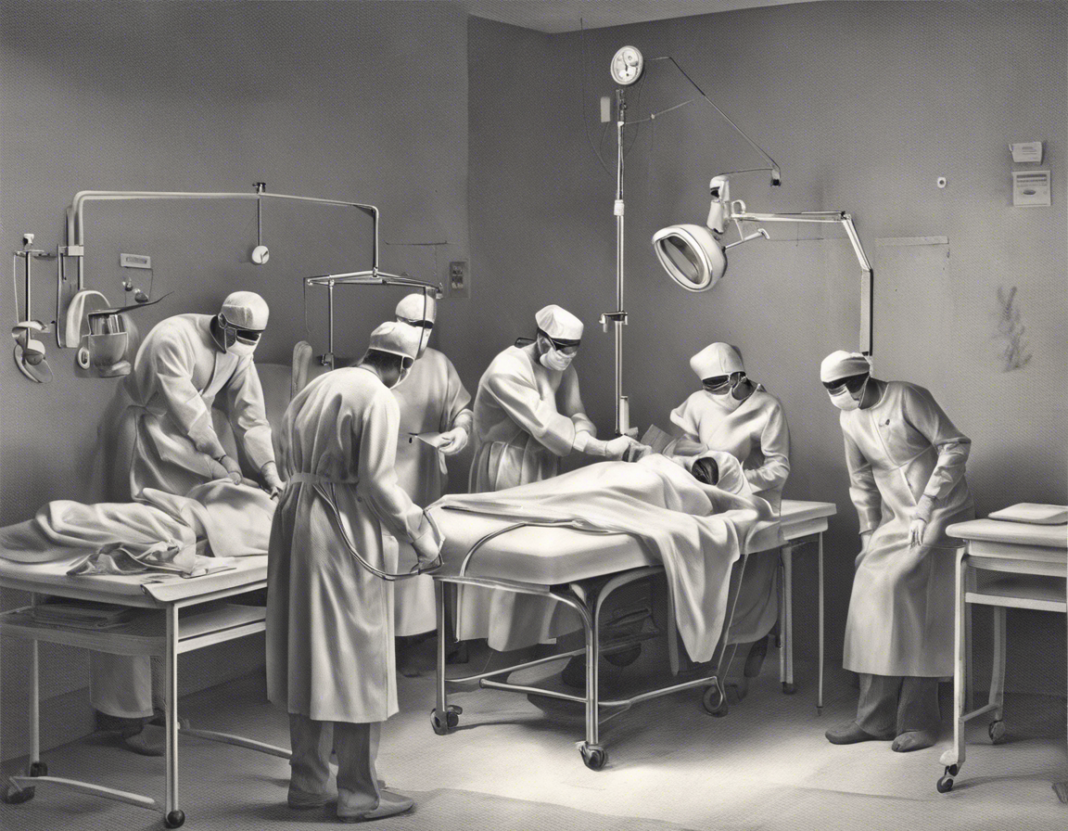When it comes to the history of medical advancements, surgery undoubtedly stands out as one of the most critical breakthroughs that have revolutionized healthcare. The process of surgery has evolved significantly over the years, from primitive and often perilous procedures to modern techniques that are not only effective but also relatively safe. One significant milestone in the history of surgery is the development of anesthesia, which has made surgical procedures less painful and more feasible.
Evolution of Surgery
Origins of Surgery
The practice of surgery dates back to ancient times, with evidence of surgical procedures being performed as early as 3000 BC in Ancient Egypt and India. Early surgeries were primarily limited to treating injuries, setting fractures, and extracting foreign objects from the body. These procedures were often done without anesthesia, leading to excruciating pain for patients.
Introduction of Anesthesia
One of the most significant advancements in the field of surgery was the discovery of anesthesia in the 19th century. Before the advent of anesthesia, surgical procedures were performed with patients fully conscious, often resulting in trauma and high mortality rates. The introduction of substances like ether and chloroform revolutionized surgeries, making them less painful and more humane.
Aseptic Technique
Another crucial development in surgery was the implementation of aseptic technique. This practice, developed by Joseph Lister in the 19th century, emphasized the importance of sterile conditions during surgeries to prevent infections. The introduction of antiseptic substances and sterile procedures significantly reduced post-operative infections and mortality rates.
Modern Surgical Techniques
The field of surgery has made tremendous advancements in modern times, with the development of minimally invasive procedures, robotic surgery, and transplant surgeries. Minimally invasive surgeries, such as laparoscopy, have reduced recovery times and post-operative pain for patients. Robotic surgery, on the other hand, allows for more precision and control during complex procedures.
Importance of Surgery in Healthcare
Surgery plays a crucial role in medical care, not only in treating injuries and diseases but also in improving quality of life. Some of the key roles of surgery in healthcare include:
- Treatment of Injuries: Surgery is often necessary to repair injuries such as fractures, torn ligaments, and internal organ damage.
- Management of Diseases: Many diseases, such as cancer, heart disease, and gastrointestinal disorders, require surgical intervention for diagnosis and treatment.
- Improving Quality of Life: Surgeries like joint replacements, cosmetic procedures, and reconstructive surgeries can significantly improve a patient’s quality of life.
FAQs about Surgery
1. What are the different types of surgical procedures?
There are various types of surgical procedures, including open surgery, minimally invasive surgery, robotic surgery, transplant surgery, and reconstructive surgery.
2. Is surgery always necessary for treating medical conditions?
Surgery is not always the first-line treatment for medical conditions. It is usually considered when other non-invasive treatments are not effective or when a condition is life-threatening.
3. What are the risks associated with surgery?
Like any medical procedure, surgery carries risks such as infection, bleeding, anesthesia complications, and organ damage. However, these risks are usually outweighed by the potential benefits of the surgery.
4. How long does it take to recover from surgery?
The recovery time from surgery varies depending on the type of procedure performed and the individual’s overall health. Some surgeries require only a few days of recovery, while others may require weeks to months.
5. Are all surgeries performed under general anesthesia?
Not all surgeries require general anesthesia. Some procedures can be performed under local or regional anesthesia, depending on the complexity and location of the surgery.
6. How can I prepare for surgery?
Before undergoing surgery, it is essential to follow your healthcare provider’s instructions, which may include fasting, stopping certain medications, and arranging for post-operative care and transportation.
7. What should I expect during the surgical procedure?
During the surgery, you will be under the care of a surgical team comprising surgeons, anesthesiologists, nurses, and other healthcare professionals. The team will ensure your comfort and safety throughout the procedure.
8. How can I promote faster recovery after surgery?
To promote faster recovery after surgery, it is important to follow your healthcare provider’s post-operative instructions, which may include wound care, prescribed medications, physical therapy, and follow-up appointments.
9. What should I do if I experience complications after surgery?
If you experience complications after surgery, such as excessive pain, bleeding, infection, or signs of surgical site complications, it is essential to contact your healthcare provider immediately for further evaluation and treatment.
10. How can I reduce the risk of post-operative infections?
To reduce the risk of post-operative infections, it is crucial to follow aseptic techniques, practice good hygiene, take prescribed antibiotics as directed, and attend follow-up appointments as scheduled.
